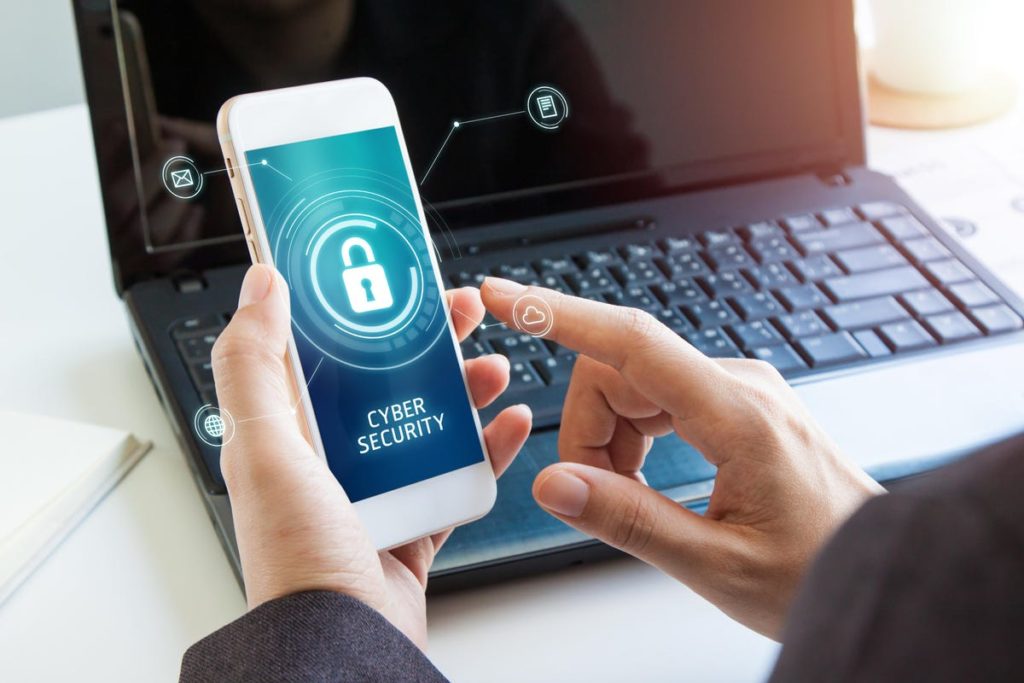Mobile phones have become an integral part of our lives, and we use them for everything from communication to entertainment and work. However, with the increasing use of mobile phones, there is also an increase in security risks, such as cyber-attacks, data breaches, and theft. In this article, we will discuss how to keep your mobile phone safe in 10000 words.

Use a strong password or PIN
The first and foremost thing you should do to keep your mobile phone safe is to use a strong password or PIN. Make sure your password is not easily guessable and contains a combination of letters, numbers, and special characters. Avoid using common words or phrases that can be easily guessed by hackers.
Keep your phone updated
Always keep your mobile phone updated with the latest software updates and security patches. These updates fix any vulnerabilities or security loopholes that may be present in the operating system. Keeping your phone updated will ensure that it is protected against the latest threats.
Install antivirus software
Installing antivirus software on your mobile phone is also a good way to keep it safe. Antivirus software can detect and remove any malware, viruses, or other malicious software that may be present on your phone. There are many free antivirus software options available, so make sure to choose one that is reputable and trustworthy.
Avoid using public Wi-Fi
Using public Wi-Fi networks can put your mobile phone at risk. Hackers can easily intercept data transmitted over these networks and access your personal information. Avoid using public Wi-Fi whenever possible, and if you must use it, make sure to use a virtual private network (VPN) to encrypt your data.
Turn off Bluetooth when not in use
Bluetooth is another potential security risk for mobile phones. Hackers can use Bluetooth to access your phone and steal your personal information. Make sure to turn off Bluetooth when you are not using it, and avoid connecting to unknown devices.
Be cautious of phishing scams
Phishing scams are a common method used by hackers to steal personal information. These scams typically involve an email or text message that appears to be from a legitimate source, such as a bank or social media platform. Always be cautious of these types of messages and avoid clicking on any links or downloading any attachments unless you are sure they are legitimate.
Use two-factor authentication
Two-factor authentication is an additional layer of security that requires you to provide two pieces of information to log in to an account. This can be a password and a code sent to your phone or email. Using two-factor authentication can greatly increase the security of your mobile phone and protect against unauthorized access.
Encrypt your data
Encrypting your data is another good way to keep your mobile phone safe. Encryption is the process of converting your data into a code that can only be deciphered with a key. This ensures that even if your phone is stolen or hacked, your data remains protected.

Use reputable apps
Make sure to only download and use reputable apps from the official app store. Be cautious of third-party app stores and apps that ask for excessive permissions or access to your personal information. Always read reviews and check the app’s privacy policy before downloading.
Backup your data
Regularly backing up your data is important in case your phone is lost, stolen, or hacked. This ensures that you can restore your data on a new device and avoid losing important information. Use cloud storage or an external hard drive to backup your data regularly.
Lock your phone when not in use
Always lock your mobile phone when you are not using it. This can be done using a password, PIN, fingerprint, or facial recognition. Locking your phone prevents unauthorized access and keeps your data safe.
Be cautious of public charging stations
Public charging stations can also pose a security risk to mobile phones. Hackers can install malicious software on charging stations or use them to steal personal information. It is best to avoid using public charging stations, and if you must use them, use a portable charger instead.
Use a screen protector
Using a screen protector can protect your mobile phone from scratches and cracks, but it can also help protect against hacking attempts. Some hackers use infrared cameras to capture your phone’s screen when you enter your password or PIN. Using a screen protector that blocks infrared light can prevent this type of attack.
Keep your phone physically safe
Keeping your mobile phone physically safe is just as important as protecting it from cyber threats. Avoid leaving your phone unattended in public places and always keep it in a secure location when not in use. Use a phone case to protect your phone from accidental drops or damage.
Avoid jailbreaking or rooting your phone
Jailbreaking or rooting your phone can remove the security features built into the operating system, leaving it vulnerable to cyber-attacks. Avoid jailbreaking or rooting your phone unless you are an experienced user and understand the risks involved.
Use a mobile device management (MDM) solution
If you use your mobile phone for work purposes, your employer may provide a mobile device management (MDM) solution to secure your phone. This solution can enforce security policies, such as requiring strong passwords and encrypting data, and can remotely wipe your phone if it is lost or stolen.
In conclusion, keeping your mobile phone safe is essential in today’s world where we rely heavily on technology. By following these tips, you can protect your phone from theft, damage, and cyber threats, and ensure that your data remains secure.